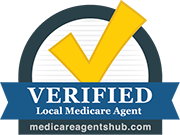As we age, our health naturally becomes more complex, and this can significantly influence our life insurance options. If you’re a senior navigating the world of life insurance, you might find yourself wondering how your health conditions will affect your coverage and premiums. ..
In this comprehensive guide, we’ll delve into how pre-existing health conditions impact life insurance for seniors, provide strategies for finding suitable coverage, and offer tips for improving your insurability. Let’s get started on securing the best protection for you and your loved ones! .

Understanding the Impact of Health Conditions on Life Insurance
Common Health Conditions and Their Effects
As we age, certain health conditions become more prevalent and can affect life insurance premiums and eligibility. Here’s a look at some common conditions and how they might impact your insurance:
- Heart Disease .: High blood pressure, heart attacks, or congestive heart failure can make insurers cautious. They may charge higher premiums or impose exclusions based on the severity and management of the condition.
- Diabetes .: Diabetes management is crucial. Type 1 and Type 2 diabetes can affect your life insurance rates, especially if blood sugar levels are not well-controlled. Insurers will consider your overall health and how long you’ve had the condition.
- Cancer .: A history of cancer can impact your insurance premiums, but the effects vary based on the type of cancer, treatment history, and current health status. Survivors might face higher rates, though some insurers may offer competitive terms depending on remission and overall health.
- Chronic Respiratory Conditions .: Conditions like chronic obstructive pulmonary disease (COPD) or asthma can influence your coverage. Insurers will look at the stability of your condition and your treatment plan.
- Kidney Disease .: Chronic kidney conditions might lead to higher premiums or more stringent requirements due to the potential for ongoing complications.
How Insurers Assess Risk
Insurers evaluate your health condition through various means:
- Medical Underwriting .: This involves a thorough review of your medical history, current health status, and any ongoing treatments. The more information you provide, the better insurers can assess your risk.
- Medical Exams .: Some policies require a medical exam to get a clearer picture of your health. This can include blood tests, urine tests, and a physical exam.
- Health Questionnaires .: Insurers may ask detailed questions about your health and lifestyle. Your answers will help them gauge the risk and determine your premiums.

Strategies for Finding Coverage with Pre-Existing Conditions
Shop Around and Compare Options
Not all insurers have the same criteria or offer the same rates. Comparing different providers can help you find the best coverage for your needs. Here’s how:
- Get Quotes .: Request quotes from multiple insurers to compare premiums and coverage options.
- Consult Brokers .: A life insurance broker can help you navigate the market and find policies tailored to your health condition.
- Check for Specialized Policies .: Some insurers offer specialized policies for those with pre-existing conditions. These might have more favorable terms or coverage options.
Consider Guaranteed Issue Policies
Guaranteed issue policies are designed for individuals who may not qualify for standard life insurance due to health conditions. While these policies don’t require medical underwriting, they typically have higher premiums and lower coverage amounts. They can be a good option if you need coverage but have difficulty qualifying elsewhere.
Improve Your Health and Lifestyle
Taking steps to improve your health can make a difference in your insurance rates:
- Manage Existing Conditions .: Adhering to your treatment plan and regularly monitoring your health can demonstrate stability to insurers.
- Adopt a Healthy Lifestyle .: Eating well, exercising regularly, and avoiding risky behaviors can positively impact your overall health and insurance rates.
- Quit Smoking .: If you smoke, quitting can significantly improve your health and lower your premiums.

Tips for Improving Your Insurability
Maintain Regular Medical Checkups
Regular checkups help you stay on top of your health and demonstrate to insurers that you’re proactive about managing your conditions. Share these records with insurers to showcase your commitment to health management.
Keep Detailed Records
Keep thorough records of your health conditions, treatments, and any improvements. This information can be useful when discussing your situation with insurers and brokers.
Work with an Experienced Broker
An experienced insurance broker can be invaluable in finding the right policy for your needs. They can help you understand the nuances of different policies and negotiate on your behalf. Reach out to our team at www.mwiallc.com for personalized assistance! .
Consider a Joint Policy
If you’re married or have a partner, a joint life insurance policy might offer better rates and coverage options. This can be a strategic move if both parties have health conditions.

Conclusion: Securing the Right Life Insurance
Life insurance for seniors with pre-existing health conditions may come with challenges, but with the right approach, you can find suitable coverage. Understanding how health conditions impact life insurance, shopping around, and improving your health are key strategies to securing the best policy for your needs.
By being proactive and informed, you can ensure that your life insurance meets your financial goals and provides peace of mind for you and your loved ones. For more personalized assistance, don’t hesitate to reach out to our expert team at www.mwiallc.com. We’re here to help you navigate your life insurance options and find the best fit for your needs! ..
Discover practical advice for staying healthy, active, and mentally sharp as you age. Embracing a healthy lifestyle can enhance your quality of life and help you stay independent longer.

Stay Physically Active
Regular physical activity is crucial for maintaining mobility, strength, and overall health. Here are some tips:- Exercise Regularly: Aim for at least 150 minutes of moderate-intensity aerobic activity, such as brisk walking, each week. Include muscle-strengthening activities on two or more days a week.
- Incorporate Balance Exercises: Practice balance exercises like tai chi or yoga to reduce the risk of falls.
- Stay Flexible: Engage in stretching exercises to maintain flexibility and range of motion.
Eat a Balanced Diet
Good nutrition supports healthy aging. Focus on a balanced diet with these tips:- Eat a Variety of Foods: Include fruits, vegetables, whole grains, lean proteins, and healthy fats in your diet.
- Stay Hydrated: Drink plenty of water throughout the day to stay hydrated.
- Limit Processed Foods: Reduce your intake of processed foods, sugar, and saturated fats.
- Consider Supplements: Consult your doctor about any necessary supplements, such as calcium, vitamin D, or B12.
Keep Your Mind Active
Mental stimulation is essential for cognitive health. Keep your mind sharp with these activities:- Engage in Puzzles and Games: Challenge your brain with puzzles, crosswords, and strategy games.
- Learn New Skills: Take up new hobbies or learn something new, such as a language or musical instrument.
- Read Regularly: Read books, newspapers, or magazines to stay informed and mentally engaged.
- Socialize: Stay connected with friends and family. Join clubs, volunteer, or participate in community activities to maintain social interactions.
Prioritize Mental Health
Emotional well-being is just as important as physical health. Here’s how to take care of your mental health:- Practice Mindfulness: Engage in mindfulness practices such as meditation, deep breathing, or yoga to reduce stress.
- Stay Positive: Focus on positive thinking and gratitude. Keep a journal to reflect on things you’re thankful for.
- Seek Help When Needed: If you’re feeling overwhelmed, anxious, or depressed, don’t hesitate to seek professional help.
Get Regular Check-Ups
Routine medical check-ups can help prevent and manage health issues. Follow these guidelines:- Schedule Regular Visits: See your healthcare provider for regular check-ups and screenings.
- Stay Up-to-Date on Vaccinations: Ensure you receive recommended vaccinations, such as flu shots and shingles vaccines.
- Manage Chronic Conditions: If you have chronic conditions like diabetes, high blood pressure, or arthritis, follow your treatment plan and monitor your health closely.
Sleep Well
Quality sleep is vital for overall health. Improve your sleep with these tips:- Establish a Routine: Go to bed and wake up at the same time each day, even on weekends.
- Create a Restful Environment: Keep your bedroom cool, dark, and quiet. Invest in a comfortable mattress and pillows.
- Limit Screen Time: Avoid screens (phones, tablets, TVs) at least an hour before bedtime.
Stay Safe at Home
Create a safe living environment to prevent accidents and injuries:- Remove Hazards: Eliminate tripping hazards like loose rugs and clutter. Install grab bars in bathrooms and railings on stairs.
- Improve Lighting: Ensure your home is well-lit, especially stairways and hallways.
- Wear Proper Footwear: Choose supportive, non-slip shoes to reduce the risk of falls.
Stay Connected
Social connections are important for emotional and mental health. Stay connected with these tips:- Maintain Relationships: Keep in touch with family and friends through regular phone calls, visits, or video chats.
- Join Groups: Participate in clubs, religious groups, or community centers to meet new people and stay engaged.
- Volunteer: Volunteering is a great way to stay active, meet people, and contribute to your community.
💡 Tip: Implement small changes to your daily routine to support healthy aging. For personalized health and wellness advice, contact @midwestinsuranceagency today!

1. Understanding the Impact of Health Conditions on Life Insurance .
1.1. Common Health Conditions and Their Effects
As we age, certain health conditions become more prevalent and can affect life insurance premiums and eligibility. Here’s a look at some common conditions and how they might impact your insurance:- Heart Disease .: High blood pressure, heart attacks, or congestive heart failure can make insurers cautious. They may charge higher premiums or impose exclusions based on the severity and management of the condition.
- Diabetes .: Diabetes management is crucial. Type 1 and Type 2 diabetes can affect your life insurance rates, especially if blood sugar levels are not well-controlled. Insurers will consider your overall health and how long you’ve had the condition.
- Cancer .: A history of cancer can impact your insurance premiums, but the effects vary based on the type of cancer, treatment history, and current health status. Survivors might face higher rates, though some insurers may offer competitive terms depending on remission and overall health.
- Chronic Respiratory Conditions .: Conditions like chronic obstructive pulmonary disease (COPD) or asthma can influence your coverage. Insurers will look at the stability of your condition and your treatment plan.
- Kidney Disease .: Chronic kidney conditions might lead to higher premiums or more stringent requirements due to the potential for ongoing complications.
1.2. How Insurers Assess Risk
Insurers evaluate your health condition through various means:- Medical Underwriting .: This involves a thorough review of your medical history, current health status, and any ongoing treatments. The more information you provide, the better insurers can assess your risk.
- Medical Exams .: Some policies require a medical exam to get a clearer picture of your health. This can include blood tests, urine tests, and a physical exam.
- Health Questionnaires .: Insurers may ask detailed questions about your health and lifestyle. Your answers will help them gauge the risk and determine your premiums.
2. Strategies for Finding Coverage with Pre-Existing Conditions .
2.1. Shop Around and Compare Options .
Not all insurers have the same criteria or offer the same rates. Comparing different providers can help you find the best coverage for your needs. Here’s how:- Get Quotes .: Request quotes from multiple insurers to compare premiums and coverage options.
- Consult Brokers .: A life insurance broker can help you navigate the market and find policies tailored to your health condition.
- Check for Specialized Policies .: Some insurers offer specialized policies for those with pre-existing conditions. These might have more favorable terms or coverage options.
2.2. Consider Guaranteed Issue Policies .
Guaranteed issue policies are designed for individuals who may not qualify for standard life insurance due to health conditions. While these policies don’t require medical underwriting, they typically have higher premiums and lower coverage amounts. They can be a good option if you need coverage but have difficulty qualifying elsewhere.2.3. Improve Your Health and Lifestyle .
Taking steps to improve your health can make a difference in your insurance rates:- Manage Existing Conditions .: Adhering to your treatment plan and regularly monitoring your health can demonstrate stability to insurers.
- Adopt a Healthy Lifestyle .: Eating well, exercising regularly, and avoiding risky behaviors can positively impact your overall health and insurance rates.
- Quit Smoking .: If you smoke, quitting can significantly improve your health and lower your premiums.














